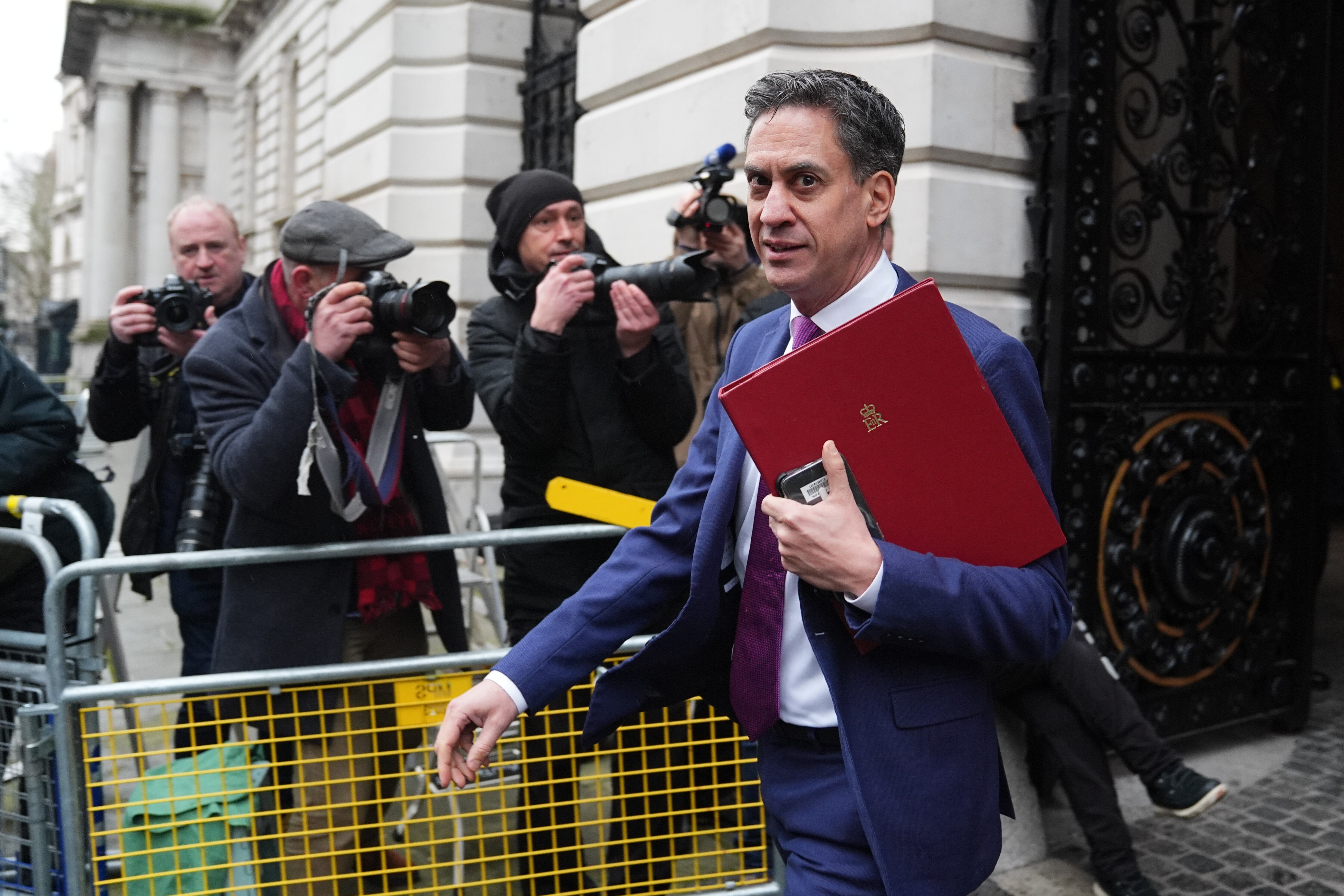It is wrong to personalise it because it is not about Ed Miliband alone: it was a wrong turning taken by most of the British political class. When Theresa May raised the target for cutting greenhouse gas emissions to 100 per cent – that is, achieving “net zero” emissions by the middle of the century – hardly an eyelid was batted.
It was the elite consensus of the time, only six years ago, but it had not been thought through. Now, the consequences of that decision are starting to work themselves out. That was what led, indirectly, to the emergency recall of parliament on a Saturday to legislate to retake control of British Steel.
Donald Trump’s tariffs made the situation suddenly worse, but they were not the cause of the crisis. Having put the target for net zero by 2050 into law, the government has now scrambled to pass another law to undo the effect. The first law worked as intended, as steel-making became more expensive. The aim was to encourage the steel industry to switch to electric furnaces instead of ones powered by coking coal because electricity can be generated from green sources.
But the electric furnaces need huge subsidies and will take years to build. In the meantime, the effect of the net-zero policy is to ensure that steel-making, long a marginal industry, became definitely uneconomic in Britain. As Jonathan Reynolds, the business secretary, said in the Commons this morning, “the effective market valuation of this company is zero”.
Reynolds, incidentally, showed himself to be a strong parliamentary performer. He should have been embarrassed to have failed to make contingency plans, requiring the emergency sitting to pass emergency law. He also appeared to be dancing to the tune played by Nigel Farage, who demanded “immediate nationalisation” on Tuesday, when parliament was still sitting, and said: “It has to happen before the end of this week.”
Instead of being humiliated, however, Reynolds managed to unite the packed Labour benches with his heroic rescue of “thousands of jobs”.

The loser from the takeover of British Steel sat a few places away on the government front bench, where Ed Miliband, the energy secretary, listened to the end of his plan to lead the world into a bright green future.
Seven months ago, he was boasting about “how British leadership can make a difference”. He was talking about his decision in the last Labour government to phase out coal power. That phase-out was completed last September, and Miliband claimed that many other countries, including France and Spain, were following “our example”. One country that has not followed our example, though, is China, where coal consumption has increased by a quarter since 2009.
British leadership in not making steel has been just as successful. If “green” policies had shut the Scunthorpe steel works, it would have brought the UK closer to its net zero target, but we would have imported more steel to make up the difference, leaving the world no closer to the goal.
This is increasingly understood. When Tony Blair pointed it out two years ago, you could almost hear the intake of breath from Andrew Marr, his interviewer, on the printed page. Blair said most people “do not need convincing that climate change is a huge problem; I think their only issue is: we should do what we can, but don’t ask us to do a huge amount when frankly whatever we do in Britain is not really going to impact climate change”.
When Rishi Sunak, two months later, set out “a more pragmatic, proportionate, and realistic approach to meeting net zero that eases the burdens on working people”, the cries of betrayal already felt a little thin.
Now, Kemi Badenoch has said that net zero is “impossible” by 2050, and there was barely a flicker on the outrage-ometer of lost causes. The Labour Party could only go through the motions of accusing her of appeasing Reform voters because it is so preoccupied with doing so itself.
There are many Labour people, including some of Keir Starmer’s closest advisers, who feel that they came to power committed to a hugely ambitious green “mission” just as the tide was turning against simplistic “net zero in one country” policies.
It may be unfair, therefore, that Ed Miliband should bear the brunt of the U-turn that was executed in parliament today. He merely gave voice to a green utopianism that was briefly so widely held that it included two and a half of the last five Tory prime ministers (David Cameron was greenish, but Theresa May and Boris Johnson were fully signed up).
Miliband may linger in Starmer’s cabinet as a green talisman, helping to keep Labour idealists from defecting to the Greens, or he may resign on a point of principle, helping Labour to appeal to Reform-minded voters.
But the government’s taking back control of British Steel today marks the end of Milibandism.


